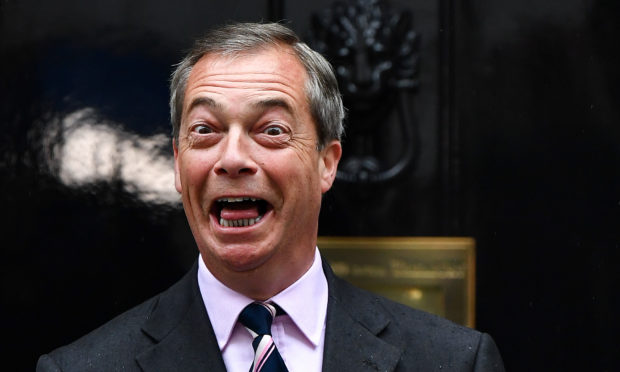When British politics wasn’t dominated by its lunatic fringes, as it is now, sturdy stalwarts of the mainstream, like Gordon Brown, were rarely accorded due respect.
The Brown premiership was relatively shortlived and his clunking fist approach much mocked at the time, following the Tony Blair years and before the Tories regained power, and the seeds of Brexit were sown.
How things have changed in the past decade. Today, with both the Labour and Conservative parties taken over by extremists, and smaller political forces on the left and right gaining momentum, Brown sounds like a sage.
His dire warning about the state of the United Kingdom, published in The Observer, is chillingly plausible.
Brown blames the advance of nationalism for the current political discord in the country – Prime Minister Boris Johnson’s “destructive, populist, nationalist ideology”, the Scottish Nationalists’ “extreme form of separation”, Northern Ireland’s unionists “becoming, paradoxically, Northern Irish nationalists”, and even a rise in Welsh nationalism.
Brown’s main focus is Johnson and his hardline government’s charge towards a no-deal Brexit, but he despairs at the transformation of Britain from a land that was “inclusive, outward-looking, tolerant and ultimately pragmatic” to one that is a picture of “bitter division, intolerance and introversion so extreme that it has sacrificed common sense in favour of a dogmatic abandonment of its own best interests”.
There is more than a touch of the preaching son of the manse about this, but Brown is right.
Look about, and what used to pass as political debate has become hate-fuelled partisanship, with all sides contemptuous of each other and no place for consensus.
In Scotland, we are more accustomed to this state of affairs, especially since 2014, when the campaign for Scottish independence cast its opponents as anti-Scottish and then, after defeat, carried on treating more than half the country as pariahs.
The antidote to nationalism could have come from either the once-strong Scottish Labour Party or the Scottish Tories, rehabilitated under Ruth Davidson.
But now Labour’s unionist credentials have all but been destroyed by its London leadership – in the form of shadow chancellor John McDonnell – offering to support the SNP’s demands for a second independence referendum.
And Davidson, meanwhile, will find her so-far-successful appeal to small ‘c’ conservative voters frustrated as long as Johnson is in Downing Street.
When the main political movements are in chaos it is not surprising that chancers attempt to enter the fray.
The announcement by the Bath-based cybernat Stuart Campbell that he might turn his Wings Over Scotland blog into a political party in the next Scottish elections is probably more alarming for the SNP than for the rest of us.
His brand of aggressive nationalism – pitched as it is from his English safe house – is unlikely to attract potential new Yes voters, but it could split the separatist vote. Here’s hoping.
A possibly even dafter idea came from Green MP Caroline Lucas, who proposed setting up an all-female “emergency cabinet” to stop a no-deal Brexit.
Lucas’s thinking was that women alone could form a national unity government because they were “less tribal” than men, a silly statement made sillier still by her inclusion of one Nicola Sturgeon in her dream team.
If Sturgeon is not tribal then Nigel Farage is not a Europhobe.
Not so long ago, these two would have been sidelined to the outer edges of power, but in the present climate either could swing a general election.
Single-issue radicals will never poll an overall majority nationwide, but the prospect is real of the SNP propping up a Labour minority under Jeremy Corbyn or Farage’s Brexit Party lending its backing to a Tory rump.
Farage is already hinting that Johnson will have to give him a meaty role in return for helping the Tories secure an election victory, and Sturgeon’s reward … well, we all know what that would be.
Brown said “unionism appears to be sleepwalking into oblivion” and, in a speech in North Berwick on Sunday, he called for a constitutional convention to consider the future of the UK. Is it not getting too late for that though?
The moment for compromise was when Theresa May presented her unpopular withdrawal agreement to the Commons.
She failed to convince the warring interests that the best hope for Britain – split almost 50/50 on EU membership – lay in the kind of fudge she had negotiated with Brussels.
When opinions are so polarised, a deal that no one really likes is the best deal.
But that concept was rejected as much by Labour moderates such as Brown as it was by many Conservative Remainers.
It’s unfashionable to say so, but did not doughty May represent just the age-old virtues Brown cherishes – of co-operation rather than conflict – that we now need to combat nationalism in all its guises?
